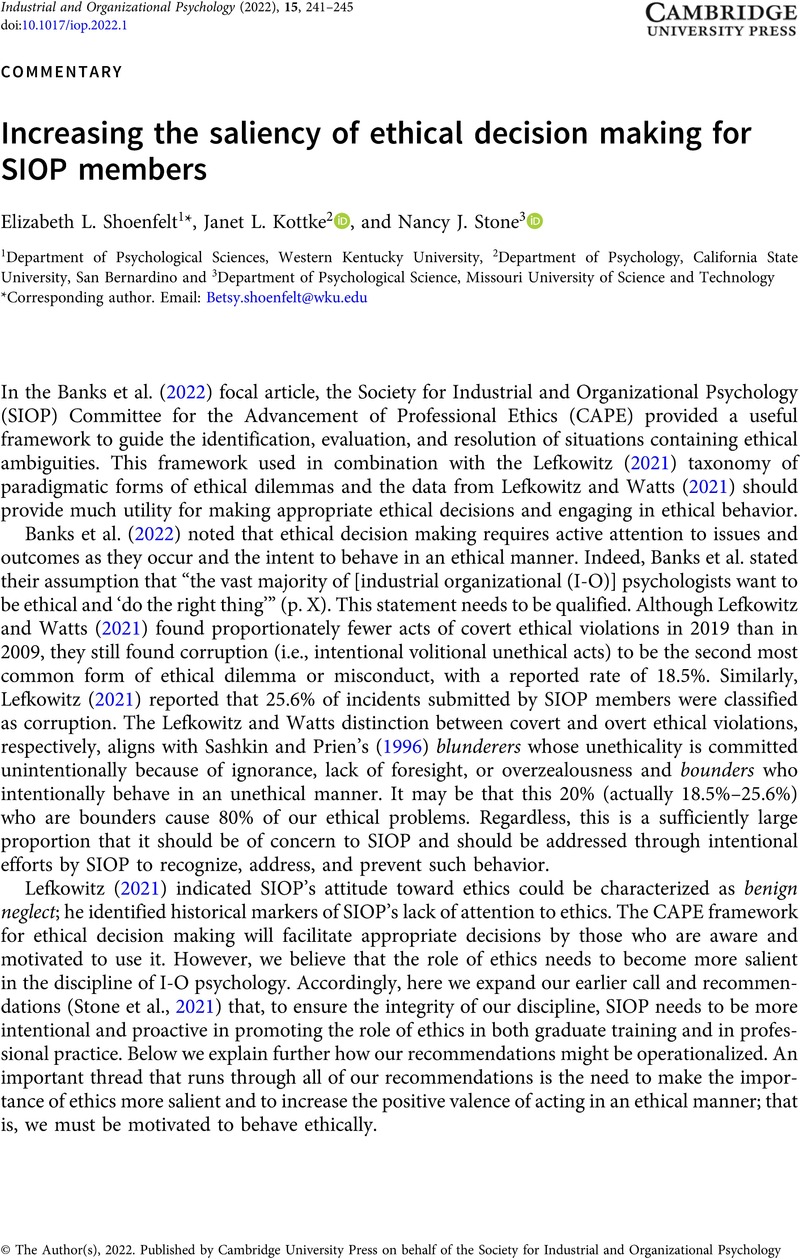Crossref Citations
This article has been cited by the following publications. This list is generated based on data provided by Crossref.
González-García, Alberto
Pinto-Carral, Arrate
Marqués-Sánchez, Pilar
Liebana-Presa, Cristina
García-Fernández, Rubén
Pérez-González, Silvia
and
Mrayyan, Majd
2025.
Characteristics of the Competency Ethical Principles for the Nurse Manager: A Systematic Review.
Journal of Nursing Management,
Vol. 2025,
Issue. 1,



